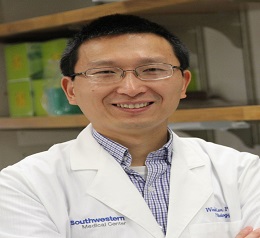Scholars International Webinar on
Cancer Research and Therapeutics
THEME: "Current Perspectives and New Challenges in Cancer Research and Therapy"
 23-24 Nov 2021
23-24 Nov 2021  ONLINE & VIRTUAL
ONLINE & VIRTUAL THEME: "Current Perspectives and New Challenges in Cancer Research and Therapy"
 23-24 Nov 2021
23-24 Nov 2021  ONLINE & VIRTUAL
ONLINE & VIRTUAL 
University of Texas Southwestern Medical Center, USA
Title: Upstream and downstream of hypoxia-inducible factor in cancers
Dr. Weibo Luo is an Assistant Professor in the Departments of Pathology and Pharmacology at UT Southwestern Medical Center (UTSW) since December 2014. He received his Ph.D. summa cum laude from the University of Magdeburg, Germany in 2007, and completed his postdoctoral fellowship and instructorship with 2019 Nobel Laureate Dr. Gregg Semenza at the Johns Hopkins University School of Medicine before joining UTSW. Dr. Luo studies oxygen homeostasis in tumor growth and metastasis at the molecular and cellular levels, with a particular focus on the master regulators of oxygen homeostasis named hypoxia-inducible factors (HIFs). He utilizes the multidisciplinary approaches to study crosstalk of HIF, epigenetics, and metabolism and their roles in tumor growth and metastasis. His overall goals are to identify the novel hypoxia-dependent therapeutic vulnerabilities and ultimately to translate knowledge to cancer therapy.
Hypoxia, a common feature of the tumor microenvironment, regulates various cancer biological processes to drive tumor progression. The hypoxia response is primarily controlled by the transcription factor hypoxia-inducible factor (HIF). HIF enhances thousands of downstream target genes in cancer cells, which requires multiple transcriptional coregulators. We recently elucidated the role of epigenetic regulators including ZMYND8, G9a, GLP, CHD4, and BRD4 in HIF transcriptional activity. HIF is also a key regulator of cancer metabolism. We identified a novel HIF-dependent reprogramming of branched-chain amino acid metabolism in glioblastoma. In conclusion, our work has provided innovative molecular insights into hypoxia signaling in cancer cells, which may yield new diagnosis and treatments in human cancers.